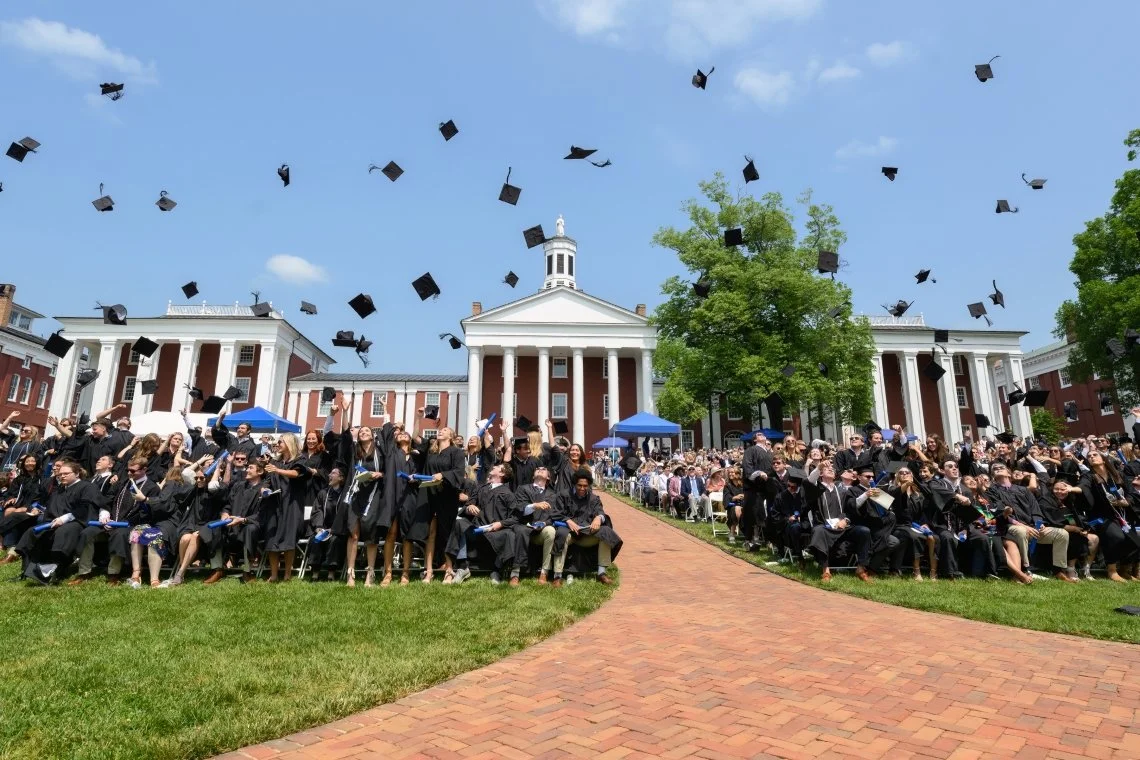Teaching Civil Discourse
Teaching Civil Discourse
Washington and Lee should take the lead in higher education.
(Washington and Lee’s 236th Commencement. Source: The Columns)
Picture an environment where ideological opposites rationally search together for solutions without ad hominem attacks or temper tantrums, where evidence, intellect, and logic are the tools to persuade, and civility prevails by expectation and example. Surely Robert E. Lee envisioned such an environment for this college when as president he instituted a policy stating, “we have but one rule here and that is that every student must be a gentleman.”
Though by current standards his vision might seem unrealistic or naïve, it is clearly preferable to the contrasting and all too familiar image of uncivil and irrational discourse. Shouldn’t we at Washington and Lee University challenge ourselves anew and aspire to Lee’s vision, however difficult?
What do our students take out into the world, having “learned” at W&L? One would hope our graduates possess a keen sense of honor as well as superior command of their discipline. They should also have developed constantly inquiring minds, readily and ably engaging in discussions of any topic with the civility and rationality exemplified by Robert E. Lee.
The ability to think critically, to question gracefully, and objectively investigate all sides of an issue, are skills effective leaders must possess and which our students should be learning. Opportunities to develop such skills should not be left to chance, but proactively offered within our curriculum so future decision makers have practice acting judiciously.
Can solutions be found if they are not sought? Can they be sought effectively unless those seeking engage in rational dialogue? We at W&L should not just say we espouse civil and rational discourse but practice it, teach it. In deliberate and happy contrast to the ubiquitous irrationality and incivility everywhere else, Washington and Lee students will gain a critical advantage by being regularly exposed to civil, rational and effective exploration of the big and controversial issues of our time.
Perhaps in seminars, debates, interdepartmental thematic explorations, and other forums, the real goal should be to see — and thereby learn — the practice of civil discourse.
Observing young ladies and gentlemen respectfully exploring difficult issues would be both refreshing and enlightening. Whatever form reviving rational and civil discourse takes, the emphasis should be on challenging the intellect, learning other points of view, and engaging in honest inquiry. This process will promote greater understanding of issues and create an environment where learning is inevitable, and solutions more possible. Learning this leadership skill will be as beneficial to our students as anything they absorb in a chemistry lab or economics class.
Washington and Lee University should take the lead in higher education by instituting a unique program which teaches the exploration of difficult issues rationally and effectively. It would be nice to see W&L recognized for solving a current problem, but the process of civil discourse itself should be the primary objective and will be of significant and immediate value for all.
Most shy away from the difficult and unfamiliar. Few good examples exist to show the way. Why not here at W&L? Why not now?
The opinions expressed in this magazine are the author's own and do not reflect the official policy or position of The Spectator, or any students or other contributors associated with the magazine. It is the intention of The Spectator to promote student thought and civil discourse, and it is our hope to maintain that civility in all discussions.


